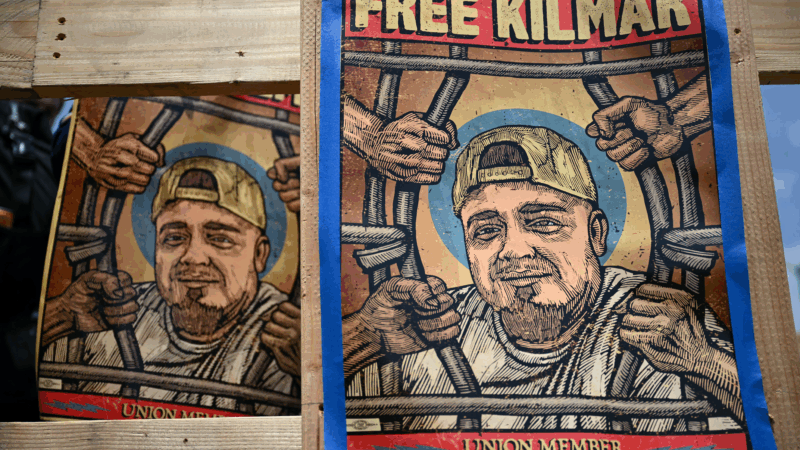NPR’s chief diversity officer to retire, with DEI in the political spotlight
NPR Chief Diversity Officer Keith Woods announced Wednesday that he would retire after a 46-year career in journalism and 15 years at the public broadcaster, even as the issue he has championed for decades takes center stage in political discourse.
Woods, who is 66 years old, presented the decision as his own. He told colleagues he had started preparing for his retirement in 2023. He put it off after Hurricane Helene destroyed his home in Tampa, Florida last year.
“After more than four decades in journalism, I’m happy to finally be able to say the words, ‘I’m retiring,'” Woods said in a statement released by the network. “Though the attacks on the work of diversity, equity and inclusion have taken some of the joy out of this moment.”
Woods’ retirement, effective May 2, comes as the federal government and some companies back away from stated commitments to diversity, equity and inclusion. PBS shuttered its DEI office earlier this month, ousting two staffers, although it says it remains committed to telling the stories of all Americans. Because it receives federal funding, PBS said its lawyers had concluded that the move was required to stay in compliance with an executive order from President Trump. In January, he directed federal agencies to terminate all “equity-related” grants or contracts. Another order required federal contractors to stipulate that they don’t promote such measures.
A federal judge has since largely blocked Trump’s orders. But Trump and his chief adviser on slashing government programs, billionaire entrepreneur Elon Musk, have called for all federal funding for NPR, PBS and public broadcasting to be eliminated. Republicans in Congress have submitted bills to do that. (NPR typically receives about 1% of its funds from federal sources annually, and about 3% indirectly from stations; PBS receives 16%, according to a spokesperson for the television system.)
In a memo, the network’s chief executive, Katherine Maher, praised Woods and told staffers and station executives that NPR would not veer from its dedication to diversity.
“NPR remains committed to supporting a diverse workforce, a welcoming workplace, and journalism that serves an audience that is representative of the American public,” Maher wrote. After Woods leaves, NPR Vice President for Diversity, Equity & Inclusion Whitney Maddox and a deputy now report to the network’s chief operating officer.
Woods came to NPR after long stretches at the New Orleans Times-Picayune and the Poynter Institute, a journalism school in St. Petersburg, Fla. He is credited with securing funding for NPR’s long-running podcast Code Switch and pushing NPR journalists to broaden the sources represented in their reporting. He also worked with public radio stations across the country.
He found a firm ally in former NPR Chief Executive John Lansing, who died last year. Lansing declared diversity to be the network’s North Star, both as a moral proposition and a business strategy. NPR increased the numbers of people of color in its ranks, though its audiences did not notably grow or shift. (NPR’s digital audiences tend to be much younger and more diverse than its broadcast audiences.)
In an essay last year that foreshadowed his own departure from the network, former NPR senior business editor Uri Berliner argued that Lansing’s approach to diversity shut out ideological diversity at the network. That critique appears to serve as one of the springboards for U.S. House hearings that are expected to focus on NPR and PBS late next month.
Woods took pains to say at a staff meeting today that the timing of his departure had nothing to do with the political moment.
“I might be doing virtual cartwheels right now, but for the context of my announcement,” Woods said, citing “a withering assault on the values of diversity, equity, inclusion; corporate capitulation all around us; and the treatment of diversity, equity and inclusion as a virus whose carriers must be eradicated. It makes this look like something it is not.”
Disclosure: This story was reported and written by NPR Media Correspondent David Folkenflik and edited by Deputy Business Editor Emily Kopp and Managing Editor Vickie Walton-James. Under NPR’s protocol for reporting on itself, no corporate official or news executive reviewed this story before it was posted publicly.
After a thrilling 7-game series, the Oklahoma City Thunder are finally NBA champions
Led by point guard Shai Gilgeous-Alexander, the league's Most Valuable Player, the Thunder outlasted the Indiana Pacers for the team's first title since moving to Oklahoma in 2008.
Federal judge says Abrego Garcia can be released on bail. That doesn’t mean he will be
A federal judge in Tennessee ordered Kilmar Abrego Garcia can be released on bail while he awaits trial on human smuggling charges. But ICE has indicated it may arrest him if he leaves prison.
Satellites show damage to Iran’s nuclear program, but experts say it’s not destroyed
Satellite imagery shows trucks at two key sites the day before the American strikes, suggesting uranium could have been moved.
Trump administration defends Iranian strikes as some lawmakers question its legality
After the U.S. took military action against three nuclear sites in Iran, reaction across the political spectrum was swift with many Democrats decrying the president's "unilateral" strikes.
As Israel recovers the bodies of three more hostages, how many are still in Gaza?
Israel said Sunday that it has recovered the bodies of three more hostages taken in Hamas' Oct. 7 attack that ignited the ongoing 20-month war in the Gaza Strip.
U.S. strikes on Iranian nuclear sites show no sign of widespread environmental impact
So far, any chemical and radioactive contamination seems confined to the nuclear sites hit by U.S. bombs






